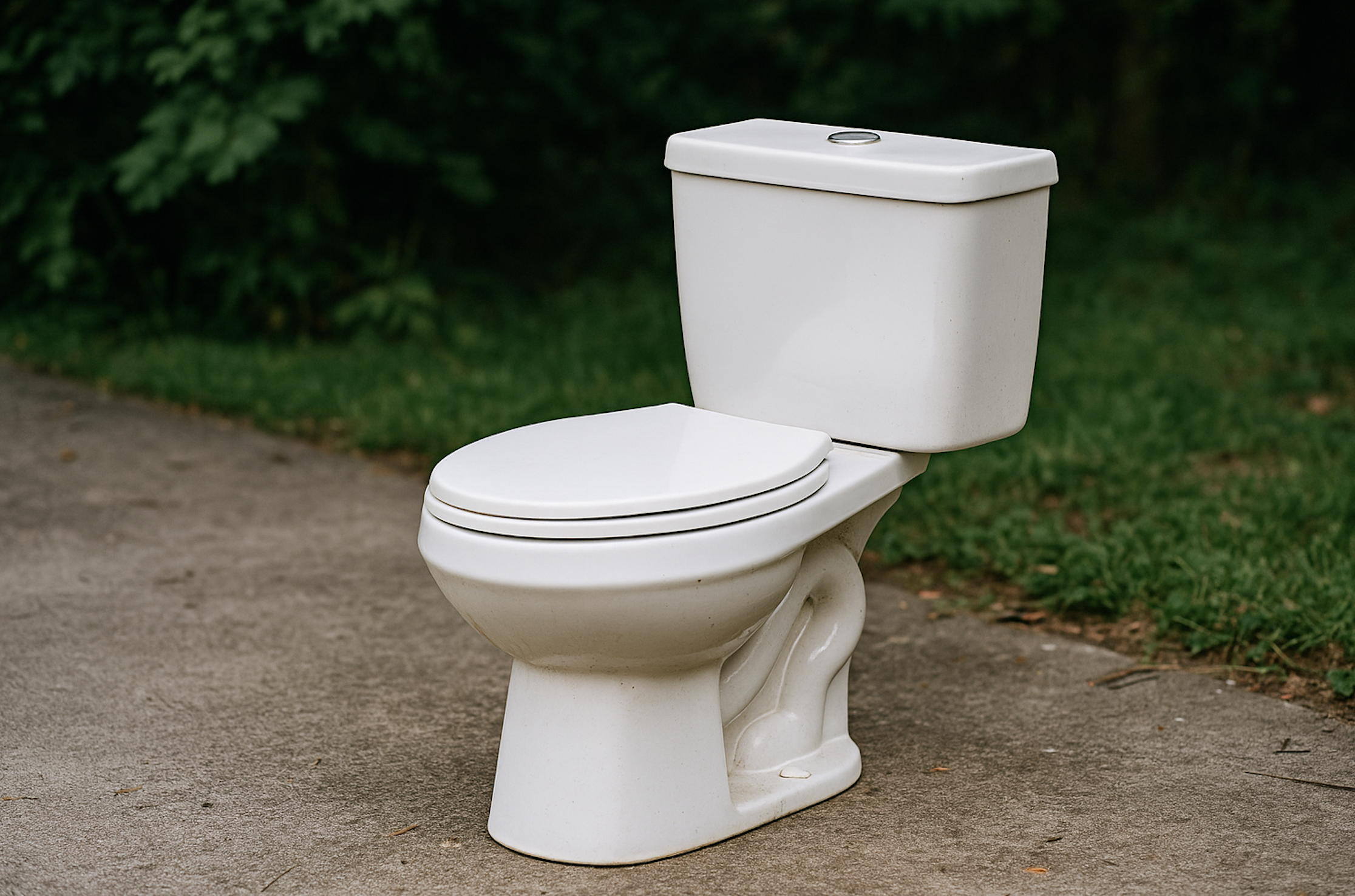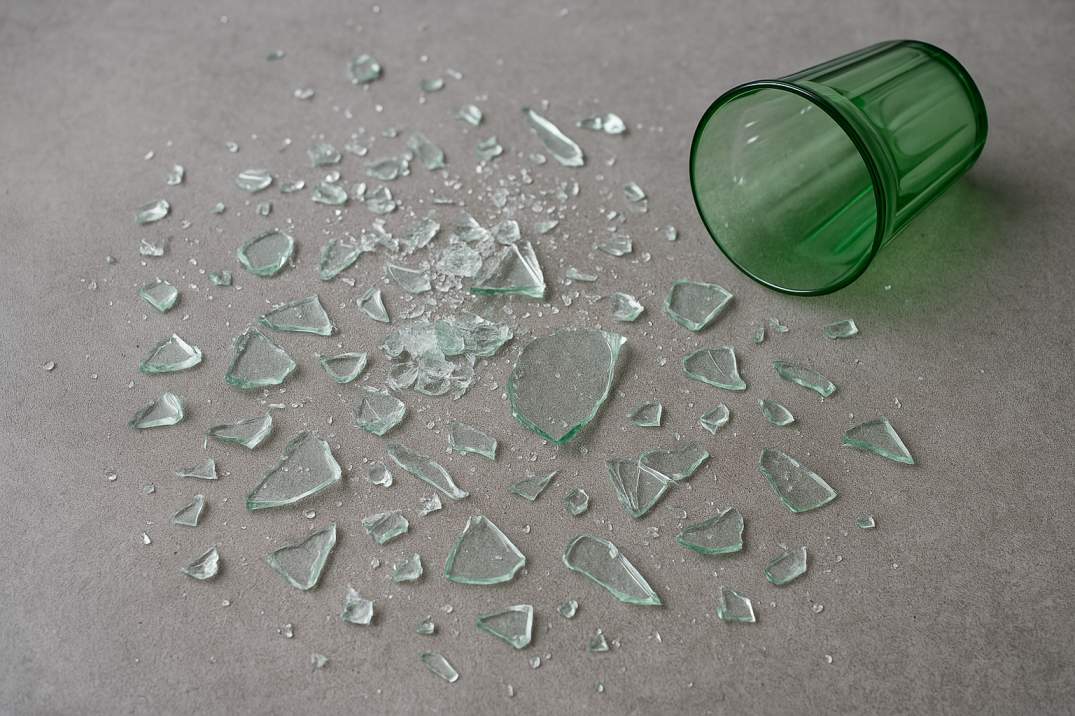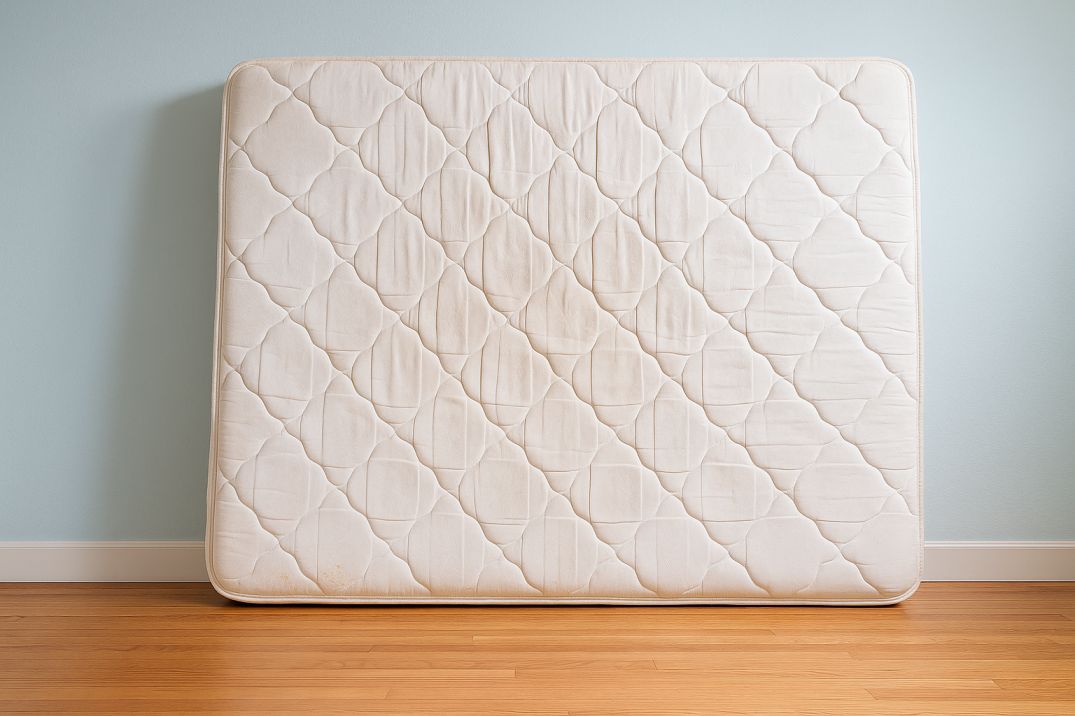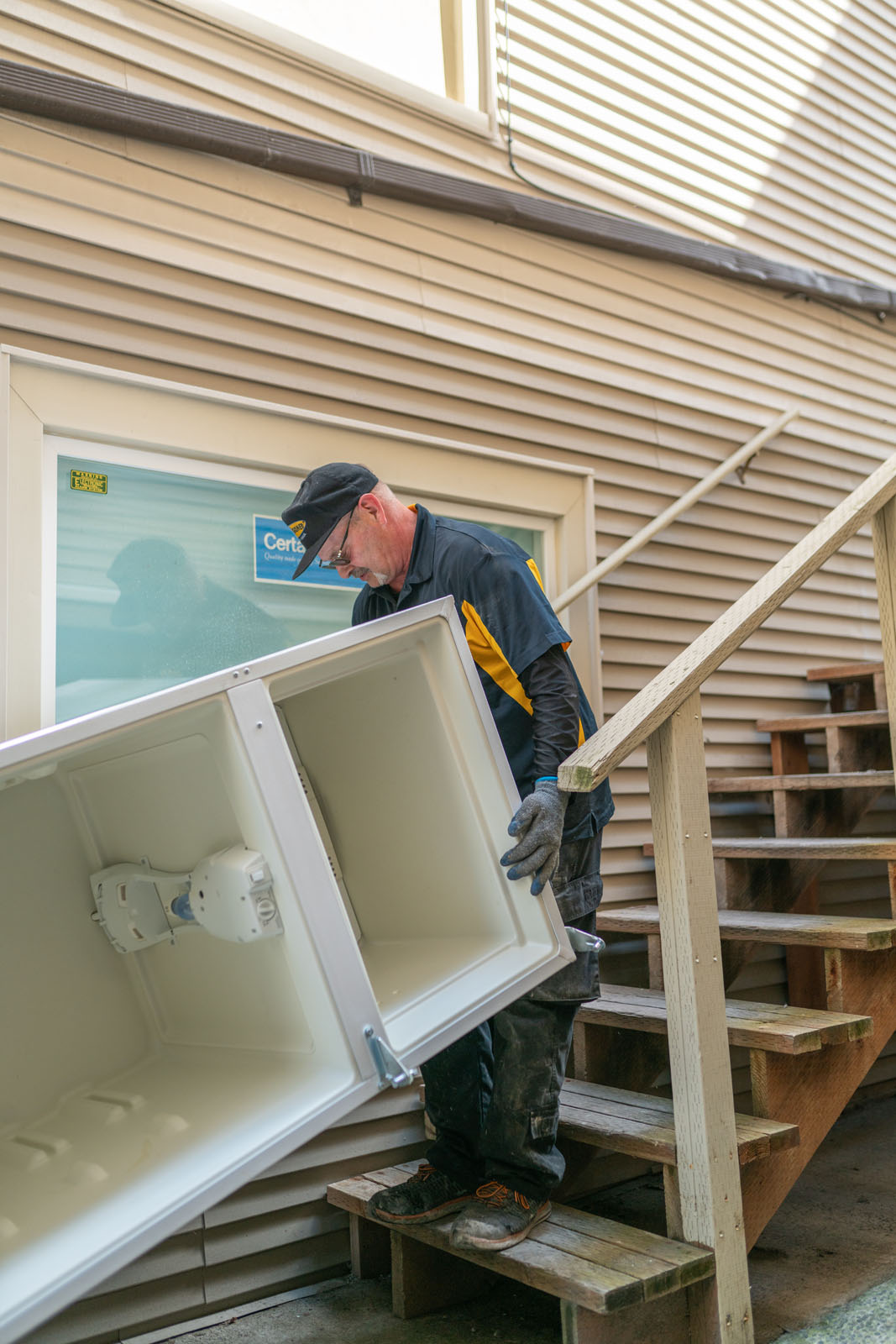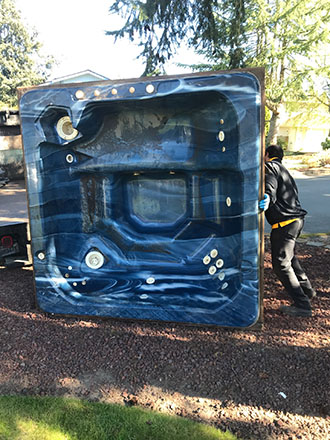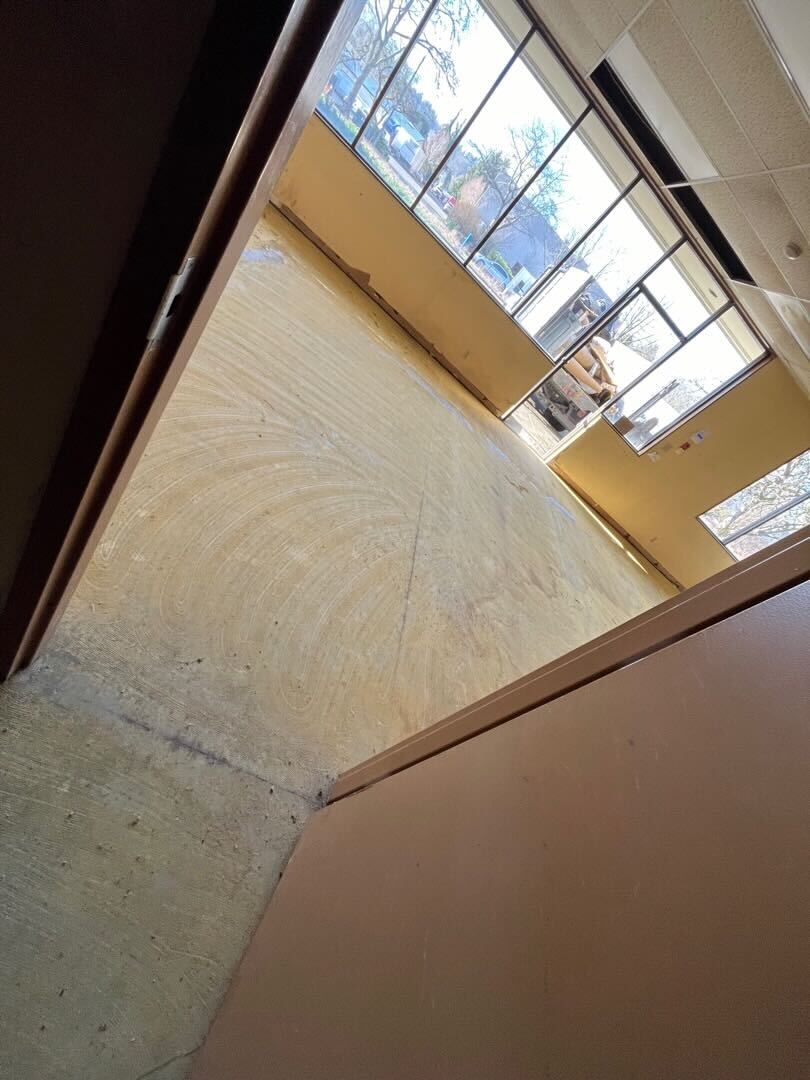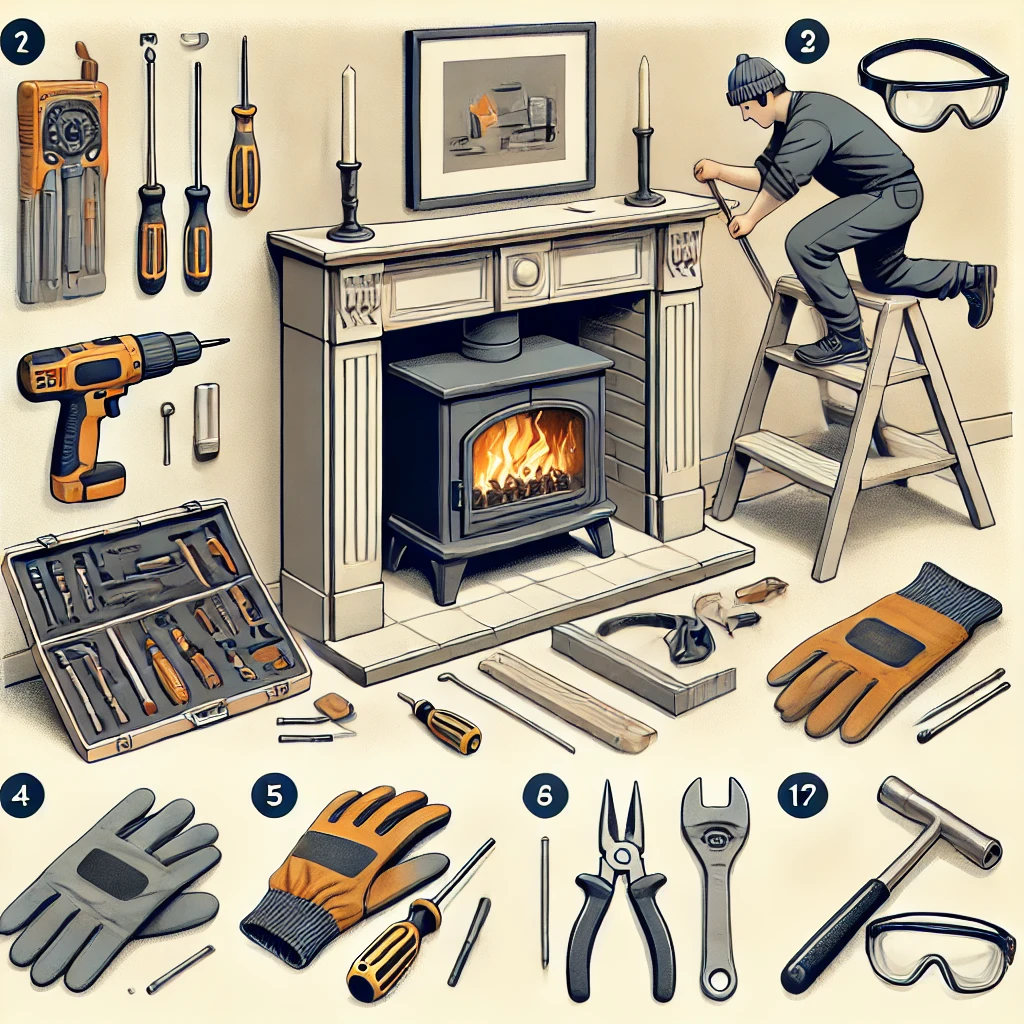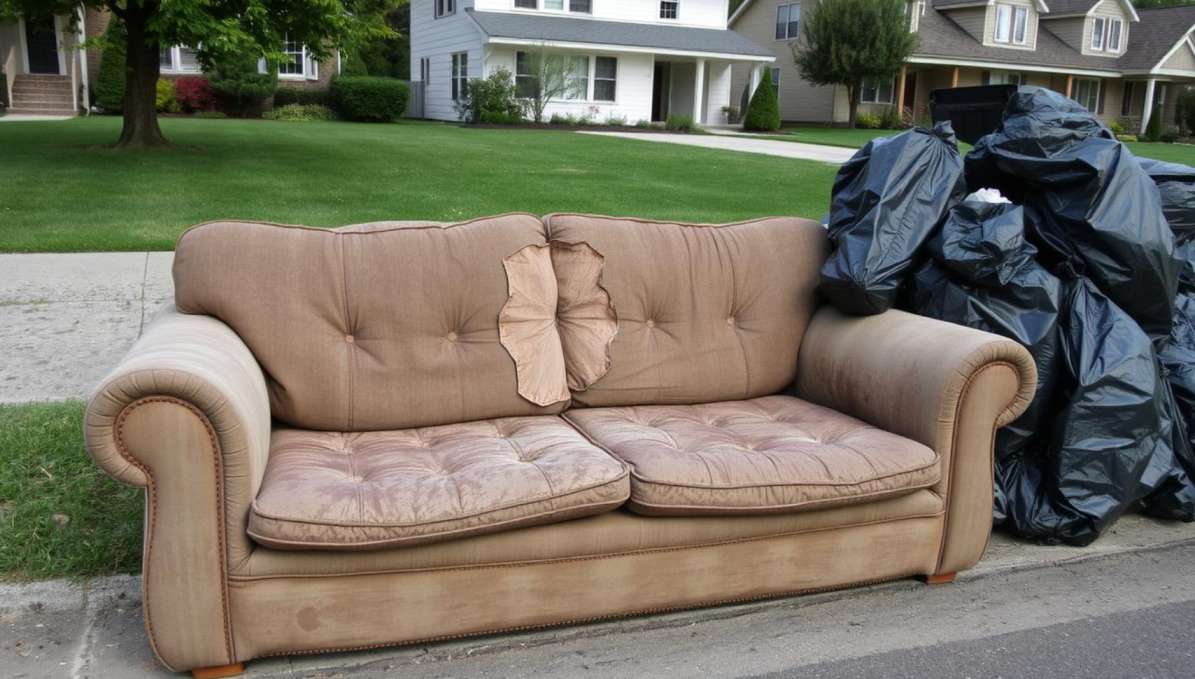Getting rid of old furniture can seem like a daunting task, but it’s important to approach it responsibly. Proper furniture disposal isn’t just about freeing up space in your home; it’s about making choices that are better for the environment and the community. Dumping furniture irresponsibly can lead to significant environmental issues, including soil contamination and increased landfill waste. By exploring responsible disposal options, you can ensure your old furniture is handled in a way that benefits everyone.
The environmental impact of improper furniture disposal is a serious concern. Furniture often contains materials like treated wood, metal springs, and synthetic fabrics that don’t break down easily. When these items end up in landfills, they contribute to pollution and take up valuable space. Recycling and donating your old furniture can help mitigate these effects. Recycling allows materials to be repurposed, reducing the need for new resources and minimizing waste.
Donating your old furniture is another excellent option. Many local charities and non-profits accept furniture donations and use them to support their programs and help those in need. By donating, you’re not only giving your furniture a second life but also supporting your community. Additionally, some organizations offer free pick-up services, making the process even more convenient for you.
Ultimately, responsible furniture disposal offers numerous benefits. It helps protect the environment, supports recycling efforts, and provides valuable resources to those in need. Whether you choose to donate, recycle, or hire a professional junk removal service, making the right disposal choice can have a positive impact on your community and the planet. Let’s dive into the details!
Donation Options for Old Furniture
Donating your old furniture not only helps you declutter your home but also provides valuable resources to those who need them most. It’s a simple yet impactful way to make a positive difference in your community.
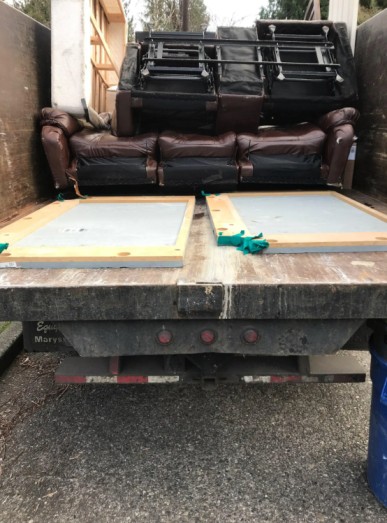
Local Charities and Non-Profits
Donating your old furniture to local charities and non-profits is a fantastic way to ensure it gets a second life. Organizations like Goodwill, Salvation Army, and Habitat for Humanity accept furniture donations and use them to support their various programs. These groups resell donated items in their thrift stores, and the proceeds help fund job training, housing projects, and other community services. Before you donate, make sure your furniture is in good condition and call ahead to confirm they accept such items.
Community Centers and Schools
Another great option is to donate your old furniture to local community centers and schools. These organizations often need furniture for lounges, waiting areas, and classrooms. By donating to these institutions, you’re directly supporting the local community and contributing to a better environment for students and community members. Reach out to nearby community centers, recreational facilities, and educational institutions to see if they could benefit from your donation. This is a wonderful way to give back and ensure your furniture is put to good use.
Free Pick-Up Services
One of the most convenient ways to donate your old furniture is to take advantage of free pick-up services. Many organizations, such as Goodwill and Salvation Army, offer this service to make the donation process easier for you. All you need to do is schedule a pick-up, and their team will come to your location to collect the furniture. This saves you the hassle of transporting bulky items and ensures that your donation reaches those in need. Additionally, some local charities and non-profits may offer similar pick-up services, so it’s worth checking with organizations in your area.
Recycling and Eco-Friendly Disposal
This section focuses on sustainable methods for getting rid of old furniture, emphasizing the importance of recycling and eco-friendly disposal. Discover local recycling centers, municipal programs, and creative DIY projects that help minimize environmental impact while repurposing your old couch.
Recycling Centers
Finding a local recycling center that accepts furniture is a key step in ensuring eco-friendly disposal. Many recycling centers are equipped to handle large items like couches, breaking them down into recyclable components such as wood, metal, and fabric. To find a nearby center, use online directories like Earth911 or contact your local waste management authority. These resources can provide information on what items are accepted and any specific preparation required. Make sure to call ahead and confirm that your couch can be recycled and inquire about any fees that might apply.
Municipal Recycling Programs
Municipal recycling programs often offer bulk trash pickup services, which can be a convenient option for disposing of large furniture items. Check with your local waste management department to find out about scheduled bulk pickup days or to arrange a special pickup. Many cities have designated days for collecting large items, but you may need to schedule a pickup in advance. Be sure to follow any guidelines provided, such as removing cushions or breaking down the couch into smaller pieces. Utilizing municipal services ensures that your old furniture is disposed of properly and can be recycled or processed in an environmentally friendly manner.
DIY Recycling Projects
If you’re feeling creative, there are numerous ways to repurpose couch materials for home projects. Here are a few ideas to get you started:
- Repurpose the Wood Frame: Use the wood from your couch’s frame to build shelves, picture frames, or garden trellises.
- Reuse the Fabric: Turn the fabric into cushion covers, tote bags, or even a patchwork quilt.
- Upcycle the Cushions: Old cushions can be transformed into pet beds, floor pillows, or outdoor seating for your patio.
Not only does DIY recycling keep materials out of landfills, but it also gives you a chance to create something unique and functional for your home. Get creative and think about how the various parts of your couch can be reused in new and exciting ways.
By choosing recycling or upcycling options, you’re not only decluttering your home but also contributing to a healthier planet.
Selling or Giving Away Your Furniture
This section offers practical advice on how to sell or give away your old furniture using online marketplaces. Learn tips for creating compelling listings on platforms like Craigslist, Facebook Marketplace, and Nextdoor, how to prepare your furniture to attract buyers, and ensure safe and smooth transactions.

Online Marketplaces
Selling or giving away your furniture online is a convenient and often quick way to find a new home for it. Using platforms like Craigslist, Facebook Marketplace, and Nextdoor can help you reach a wide audience and make the process easy. Here are some tips to ensure your listing stands out:
- Create a Detailed Post: Include a clear and honest description of your couch, noting any wear and tear. Highlight its best features and dimensions.
- Add High-Quality Photos: Good photos can make a big difference. Take pictures from multiple angles in good lighting to show the couch clearly.
- Set a Fair Price: Research similar listings to set a competitive price. If you’re giving it away for free, make that clear in your listing to attract more interest.
- Utilize Local Buy/Sell Groups: Posting in local groups can increase visibility and attract nearby buyers.
- Engage with Potential Buyers: Be responsive to messages and questions. Prompt replies can help you close the deal faster.
- Update Your Listing: Regularly update your listing to keep it active and visible in searches.
- Target Your Neighborhood: Nextdoor is great for reaching people in your immediate community, making pick-up arrangements easier.
- Clear Communication: Provide all necessary details in your post and be clear about the condition of the couch. Transparency builds trust.
- Coordinate Pick-Up: Arrange a safe and convenient pick-up time. If possible, have someone with you when the buyer arrives for added safety.
Using these platforms, you can efficiently sell or give away your old furniture, ensuring it finds a new home and doesn’t end up in a landfill. The key is to be detailed, honest, and responsive to potential buyers.
Professional Furniture Removal Services
This section explains when it is practical to hire a professional furniture removal service for old furniture disposal. It highlights popular services, their disposal processes, and compares the costs and benefits, emphasizing the convenience and environmental responsibility of using professional services.
When to Consider Furniture Removal Services
Hiring a professional junk furniture service is a practical option in several scenarios. Consider this route if your couch is too heavy or bulky to move on your own, or if you lack the transportation to haul it away. It’s also a good choice if you’re on a tight schedule and need a quick and hassle-free solution. Professional services are ideal for those who prefer convenience over handling the logistics and physical labor involved in couch disposal. This option ensures that your couch is disposed of responsibly without adding stress to your day.
Several companies offer junk removal services that can help you dispose of your old couch. These companies provide full-service junk removal, handling everything from pick-up to disposal. They strive to recycle or donate items whenever possible, making them an eco-friendly option. The process is simple: you schedule a pickup, their team arrives, provides an upfront price, and takes the couch away. Known for their commitment to recycling, these services ensure that a significant portion of the junk they collect is recycled or donated. They offer convenient scheduling and professional removal, with an emphasis on environmentally responsible disposal.
Furniture Removal Cost and Convenience
Professional furniture removal services come with a cost, but the convenience often outweighs the price for many people. Here’s a comparison to help you decide:
- Pricing: Prices typically range from $150 to $250 depending on your location and the size of the item. The convenience of having professionals handle the heavy lifting and disposal can make this option worth the cost.
- Environmental Focus: Pricing is competitive, and many services offer free estimates based on the volume of junk. Their strong recycling focus is a plus for environmentally conscious consumers.
- Customer Satisfaction: Prices are similar to other major services, with the added benefit of supporting ethical disposal practices. They offer transparent pricing and a commitment to customer satisfaction.
By choosing a professional furniture removal service, you ensure your old couch is disposed of responsibly, with minimal effort on your part. It’s a stress-free way to clear out your space, especially when dealing with large or difficult-to-move furniture.
What NOT to Do While Dumping Old Furniture
This section outlines the common mistakes to avoid when disposing of old furniture. It emphasizes the importance of following legal and environmentally friendly practices, explaining why actions like illegal dumping, burning furniture, and neglecting recycling options are harmful. It also highlights the significance of removing personal belongings and considering donation or upcycling options.
1. Don’t Dump Illegally
Leaving furniture on the curb without arranging for proper pickup or dumping it in unauthorized areas is illegal and can lead to hefty fines. Illegal dumping contributes to environmental pollution and creates eyesores in the community. Always check with your local waste management services for proper disposal methods.
2. Don’t Burn Old Furniture
Burning furniture might seem like a quick solution, but it’s incredibly harmful to the environment and your health. Furniture materials often contain chemicals and finishes that release toxic fumes when burned. This can lead to air pollution and serious health risks. Instead, opt for recycling or donating.
3. Don’t Leave it in Public Spaces
Abandoning furniture in parks, vacant lots, or other public spaces is not only inconsiderate but also illegal. This practice contributes to litter and can harm local wildlife. Always ensure you dispose of furniture through proper channels to keep public areas clean and safe.
4. Don’t Ignore Recycling Options
Many people overlook recycling when it comes to old furniture, but it’s a crucial step in reducing landfill waste. Recycling allows materials like wood, metal, and fabric to be repurposed and reused. Ignoring these options contributes to unnecessary waste and environmental harm.
5. Don’t Forget to Remove Personal Belongings
Before disposing of your couch or other furniture, make sure to thoroughly check for and remove any personal belongings. Items like keys, money, or important documents can often be forgotten in the crevices of furniture. Taking the time to double-check ensures you don’t lose anything valuable.
6. Don’t Assume It’s Beyond Help
Just because your furniture is old doesn’t mean it’s unusable. Consider donating or upcycling it rather than throwing it away. Many organizations and individuals can give your old furniture a new life, reducing waste and supporting those in need.
By avoiding these common mistakes, you can ensure that your old furniture is disposed of in a responsible and environmentally friendly manner. Taking the time to properly dispose of your items helps protect the environment, supports your community, and complies with local regulations.
Properly disposing of old furniture is crucial for maintaining a clean and environmentally responsible home. Whether you choose to donate, recycle, sell, or hire a professional junk removal service, each method offers unique benefits and helps minimize your environmental footprint. By donating, you support local charities and community centers, providing valuable resources to those in need. Recycling helps conserve materials and reduce landfill waste, while selling or giving away your furniture ensures it finds a new home and continues to be useful.
Avoid common mistakes such as illegal dumping, burning furniture, or neglecting recycling options. These actions can harm the environment and result in fines. Instead, opt for responsible disposal methods that protect the planet and adhere to local regulations. Remember to always remove personal belongings before disposing of your furniture, and consider creative upcycling projects to give old materials a new purpose.



